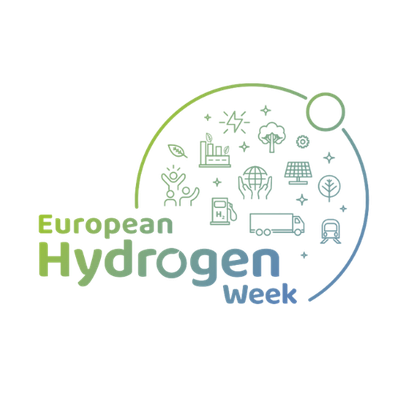European Hydrogen Week
DLR is the German aerospace research and technology centre. In its core areas, DLR develops technologies for aeronautics and space, energy and transport, as well as security and defence research. A broad spectrum of results and innovations bring benefits for industry and business, authorities and administration as well as for public stakeholders. At 30 locations across Germany, DLR fulfils its responsibility to society through an intensive exchange of knowledge and targeted technology transfer.
With regard to hydrogen research, DLR institutes have long been working on all facets – from climate-friendly production to storage, distribution and use. DLR is researching various production processes such as water electrolysis, biogas reforming, and both photoelectrochemical and thermochemical water splitting. Furthermore, it is working on solutions for long-distance transport, distribution and storage. Another area of research is energy converters such as fuel cells in order to use hydrogen for mobile applications such as the propulsion of trains, road vehicles, ships or aircraft, and for stationary applications such as industrial processes or electricity supply.
Furthermore, DLR institutes are researching how gas turbines can be powered by hydrogen for use in industry and energy supply. The use of hydrogen for rocket propulsion is another important field.
In technology assessments, it is analysing how industry and society can best meet the challenges of transitioning from a fossil fuel-based economy to a hydrogen-based system. DLR institutes have unique large-scale facilities for developing technical solutions from laboratory to industrial scales. Together with industry partners, we are working on application-oriented solutions to specific problems.
At H2 Tech Expo, you can meet experts from DLR-Institute of Engineering Thermodynamics, who offer an insight in their H2 activities:
The Institute of Engineering Thermodynamics’ research on hydrogen technologies is spanning from materials to system-level development. This includes hydrogen electrolysis and co-electrolysis, hydrogen storage for both stationary and mobile applications, as well as component development and diagnostics for fuel cells. The institute also focuses on hybridized fuel cell systems, system integration, and simulation-based design for optimizing stationary and mobile applications.
Take the opportunity to talk to experts from the following DLR institutes:

